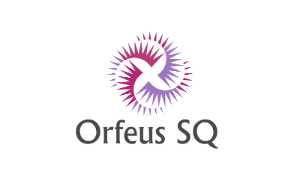Intelligence is about our ability to solve problems and think about them in different contexts. While the traditional rational intelligence usually used to solve logical or strategic problems (IQ) is important, as is the ability to empathise and display compassion with another’s situation (EQ), they need to be underpinned by Spiritual Intelligence (SQ) – the ability to access higher meaning, values and purpose through a greater level of self-awareness and consciousness. Higher levels of SQ enable us to leverage our IQ and EQ in order to act with meaning, purpose and compassion. The term Spiritual has no necessary connection with religion, but rather draws on a biological understanding of spirituality, where it is seen as a unique and innately human trait that is physiologically determined and therefore can have both secular and theist expressions. Spirituality is part of humanity’s search for meaning and purpose, it is what ‘makes us ask why we are doing what we are doing and makes us seek some fundamentally better way of doing it. It makes us want our lives and enterprises to make a difference’ (Zohar & Marshall 2004, p.29).
Orfeus SQ’s approach is informed by the seminal work in SQ, Spiritual Capital by Danah Zohar and Ian Marshall, who broaden the notions of ‘capital’ – from material, social, human, natural to that of Spiritual Capital, which defines a ‘sense of wider meaning, the possession of an enlivening or inspiring vision…and a deep sense of wider purpose’ (p.27). Spiritual Capital is the capital necessary to move society onto an expanded concept of wealth and one which should inform movements such as Corporate Responsibility if it is to be a genuine vehicle to achieve deep transformative change rather than simply a PR led strategy to maintain a business-as-usual approach.
Linked to the concept of Spiritual Capital is Spiritual Intelligence (SQ), which Zohar & Marshall define as ‘an ability to access higher meanings, values, abiding purposes, and unconscious aspects of the self and to embed these meanings, values and purposes in living a richer and more creative life’ (p. 3). SQ can be best understood in relation to other forms of intelligence and capitals as summarized in the Table below.
Forms of capital and corresponding Intelligence
Type of Capital Type of Intelligence Type of Thinking Function
Material capital IQ – Rational intelligence Rational What I think – the intellectual intelligence we use usually use to solve logical or strategic problems
Social Capital EQ – Emotional Intelligence Associative What I feel – the intelligence we use when we empathise or display compassion with someone else’s
situation. It enables us to respond to different situations and behave appropriately to the context of
different situations
Spiritual Capital SQ – Spiritual intelligence Quantum What I am – the intelligence we use to address and solve problems of meaning and value
Source: Adapted from Zohar & Marshall (2004); Zohar (2016)
These three forms of capital and intelligence are not mutually exclusive, in fact Zohar and Marshall argue that SQ is a prerequisite for both IQ and EQ to function effectively – it is what they refer to as our ‘ultimate intelligence’. IQ, EQ, and SQ can function separately or together, and more importantly, they show how IQ and EQ work within boundaries while SQ allows humans to change the rules and to alter situations and allows us to play with the boundaries and provides access to higher levels of consciousness. In other words, this is the intelligence required to solve complex social problems. See also articles in the Resources section.

